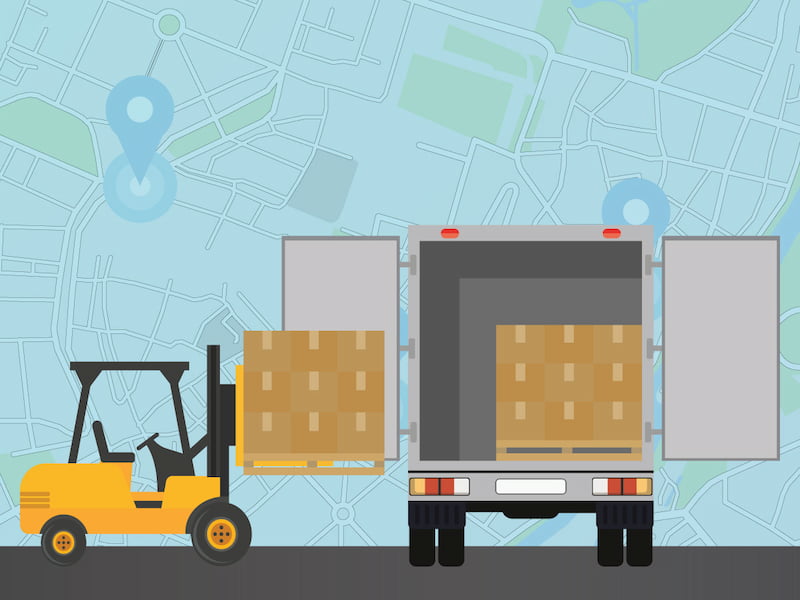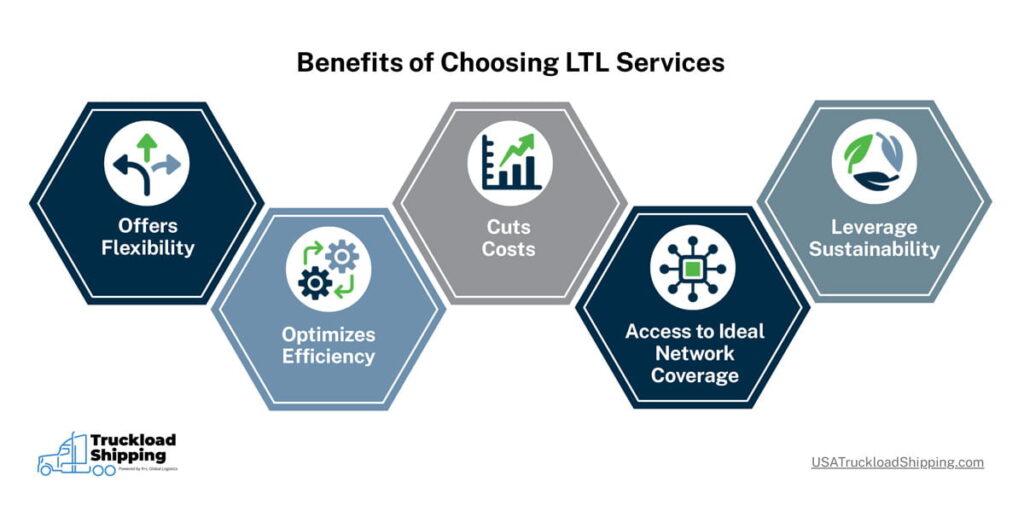
If you're a new shipper, LTL might be an acronym that's alien to you. As a transportation provider that offers this service, we've seen firsthand how it helps businesses in a variety of industries. We'll explain how it relates to partial truckloads, when to use an LTL carrier vs a full truckload option, and more.
Key takeaways:
Get on the road to understanding the ins and outs of LTL trucking.
Less-than-truckload shipping refers to cargo delivered to multiple places from the same trailer. Typically, the freight on board is from two or more shippers.
An LTL carrier will accept hauls from multiple shippers and deliver to various locations with the goal of filling a trailer as much as possible. That doesn’t mean the truck will never have empty space, just that it depends on the loads each time.
As a business owner or logistics manager, it’s important to know that LTL trucking is available and can help with growth and profitability too. The top industries using LTL include:
You might even be familiar with some businesses that use LTL shipping such as: Birchbox, JuicePlus+, and Stitch Fix.
A full truckload (FTL) haul means there is one shipper and one destination. This is vastly different from LTL, which as outlined above, services multiple shippers and multiple destinations all in one trailer. To learn more about how LTL and FTL differ, check out our blog on FTL vs LTL Freight.
Determining the best freight shipping service for your business needs is important on many levels. For instance, you don’t want to overpay, cutting into profits, nor do you want to end up with a poor reputation because items were damaged, late, or worse…missing. Here’s a list of things to consider to make sure LTL shipping is the right choice:
For example, you’re an artisan woodworker running a mid-sized manufacturing business of custom furniture who’s established contracts with five boutique home décor stores across the Southeast. Let’s say each store requires a bi-weekly restock delivery. Each consists of a mixed load of furniture pieces, averaging 6–8 pallets per shipment, weighing roughly 4,000–6,000 lbs total.
Using FTL shipping for each destination means that you’d have to pay for the full capacity of a truck (typically up to 26 pallets or 44,000 lbs), even though you don’t need that much space. That’s an inefficient and costly option under these circumstances, especially with deliveries spread across multiple cities.
LTL can speed up that process by having deliveries go out at the same time on multiple trucks and still save the business money.
Even though LTL shipping is all about sharing the truckload with other shippers, there are still other benefits we haven’t yet discussed. Grab a coffee (or tea) and we’ll hit these quickly.

Carriers in the LTL space offer a range of services such as inside pickup and delivery, expedited shipping, possibly even liftgates, each of which helps cater to various needs.
These consolidated LTL shipments help optimize the use of each truck, the transportation resource. And with fewer trucks on the road, there’s less traffic congestion too.
Who doesn’t want to reduce their shipping costs? As a cost-effective solution, LTL trucking is usually more affordable than FTL for limited pallet loads because of its main premise: shared transportation.
Most top-tier LTL carriers have access to national and regional carrier networks. Why is this important? It puts you in the driver’s seat of your business growth by expanding your shipping options over a wider geographical area. When you need to expand into a new region, there won’t be a need to hunt for new carriers.
With LTL shipments, the consolidation of cargo minimizes the number of trucks on the road. This leads to reducing emissions and fuel consumption, which gives you an opportunity over your competition. How? Incorporate your eco-friendly business practices into your marketing.
There are a handful of reasons LTL shipping is a fool-proof choice for US businesses above and beyond the benefits already outlined above. For example, because you’ll be shipping smaller quantities more frequently, you don’t need to delay shipping waiting to clear a full truckload.
You also won’t need to rely on a large warehouse to store your products either (which increases your expenses and decreases your bottom line). Moreover, you can keep inventory flowing which is another way to reduce your inventory cost.
In short, LTL trucking can help streamline your operations and minimize overhead. It will also help you avoid overstocking and understocking issues.
Now you know what LTL shipping is and when it’s ideal to use. You’ve familiarized yourself with some of the industries that include LTL shippers and the benefits these businesses enjoy from such a freight service.
Who do you turn to for this logistics need and high-level expertise? USA Truckload Shipping has an unparalleled LTL network across the US that you can leverage. Call us at (866) 353-7178 or submit a contact form online. Get in touch today, so your shipment can be on the road tomorrow.
R+L Global Logistics
315 NE 14th St., Ocala, FL 34470